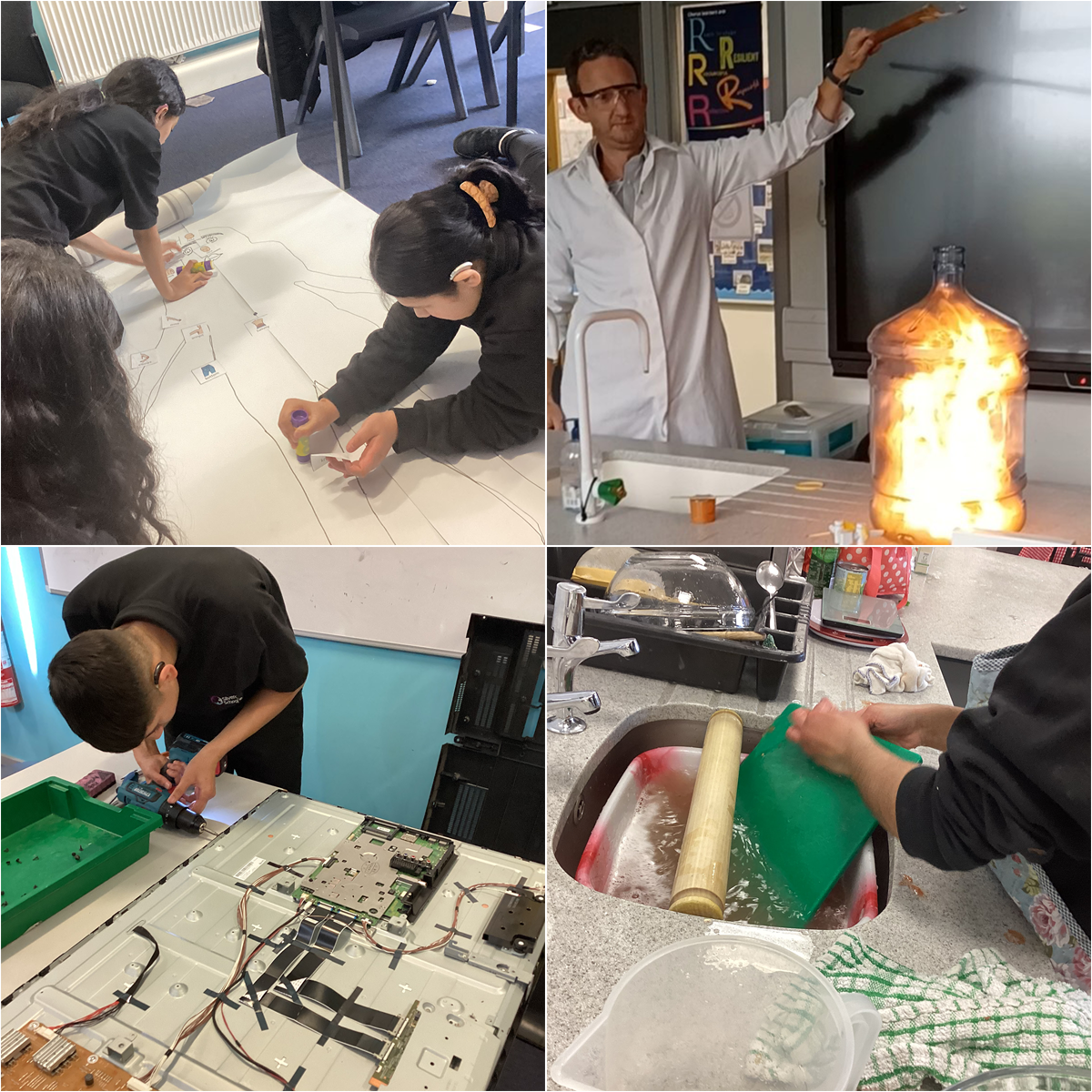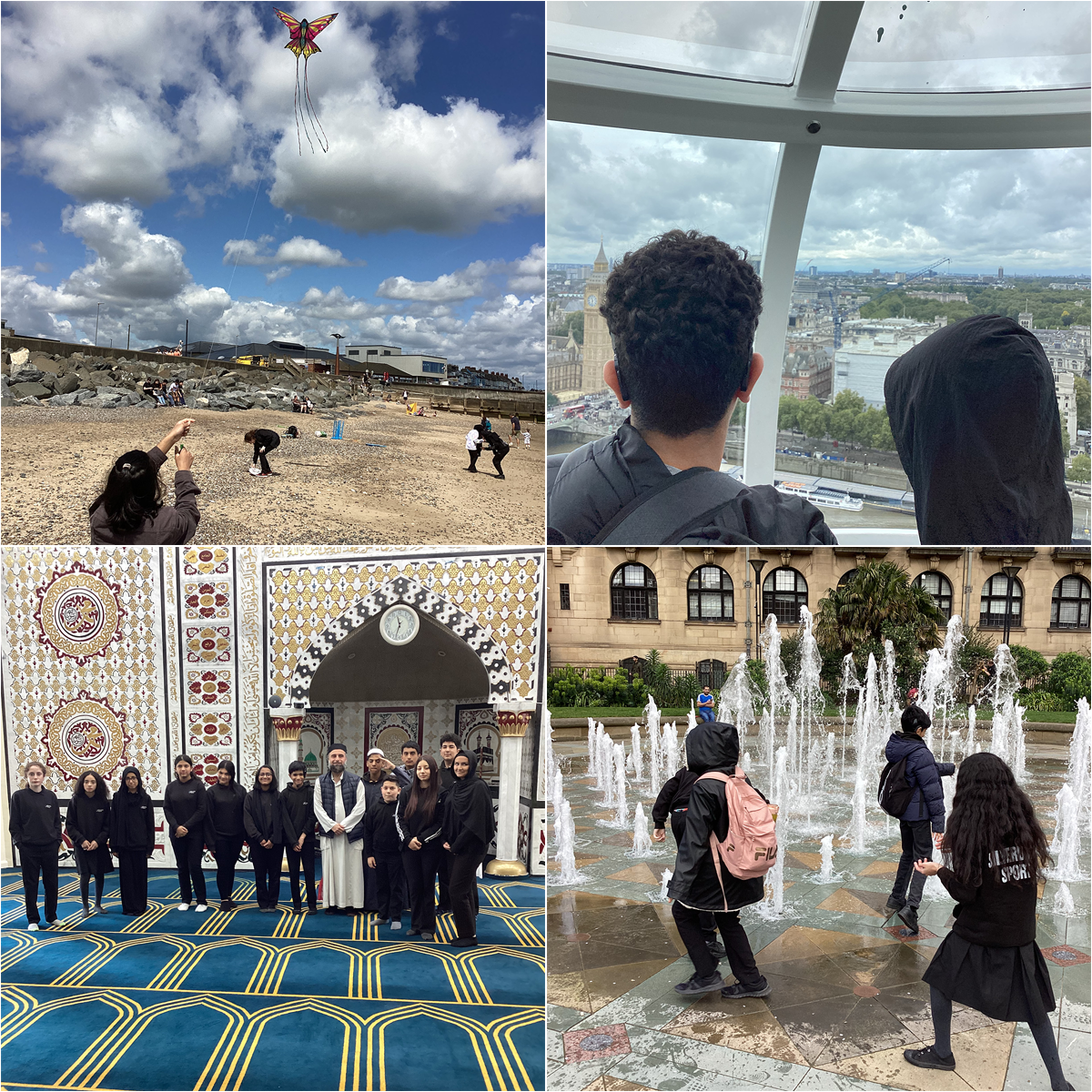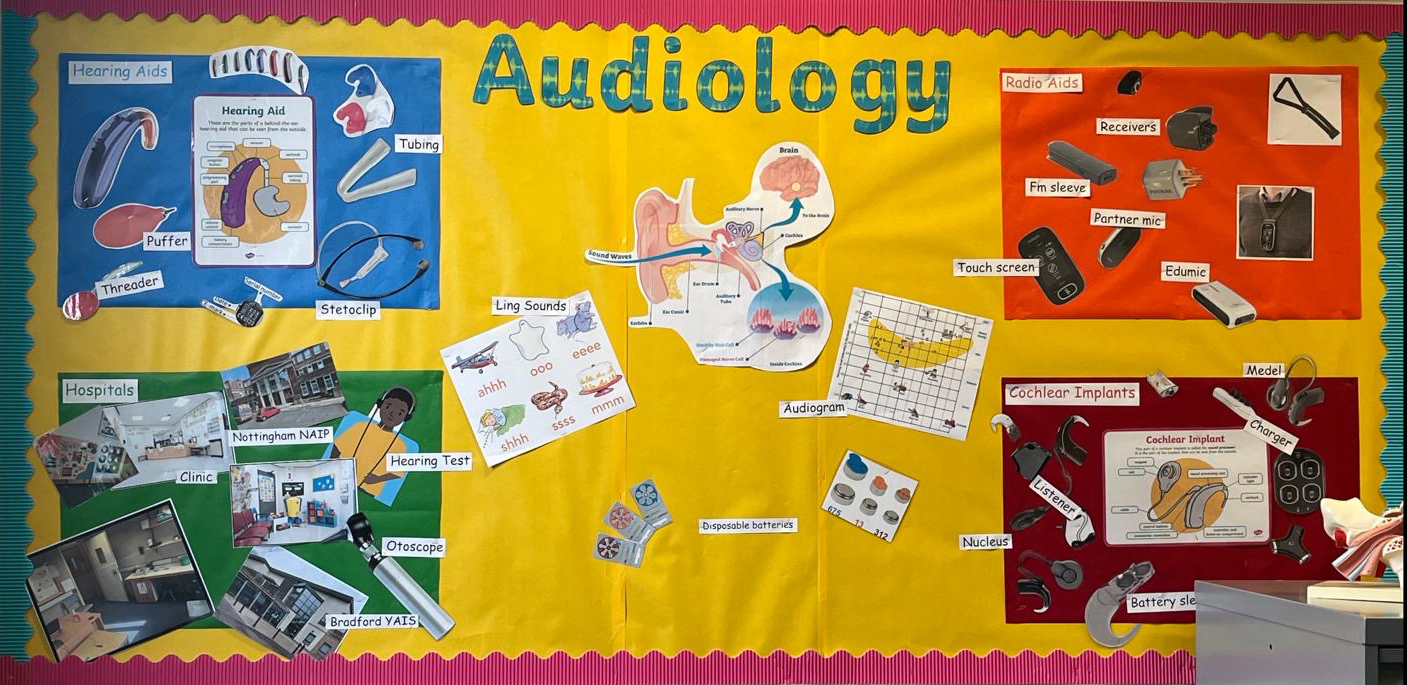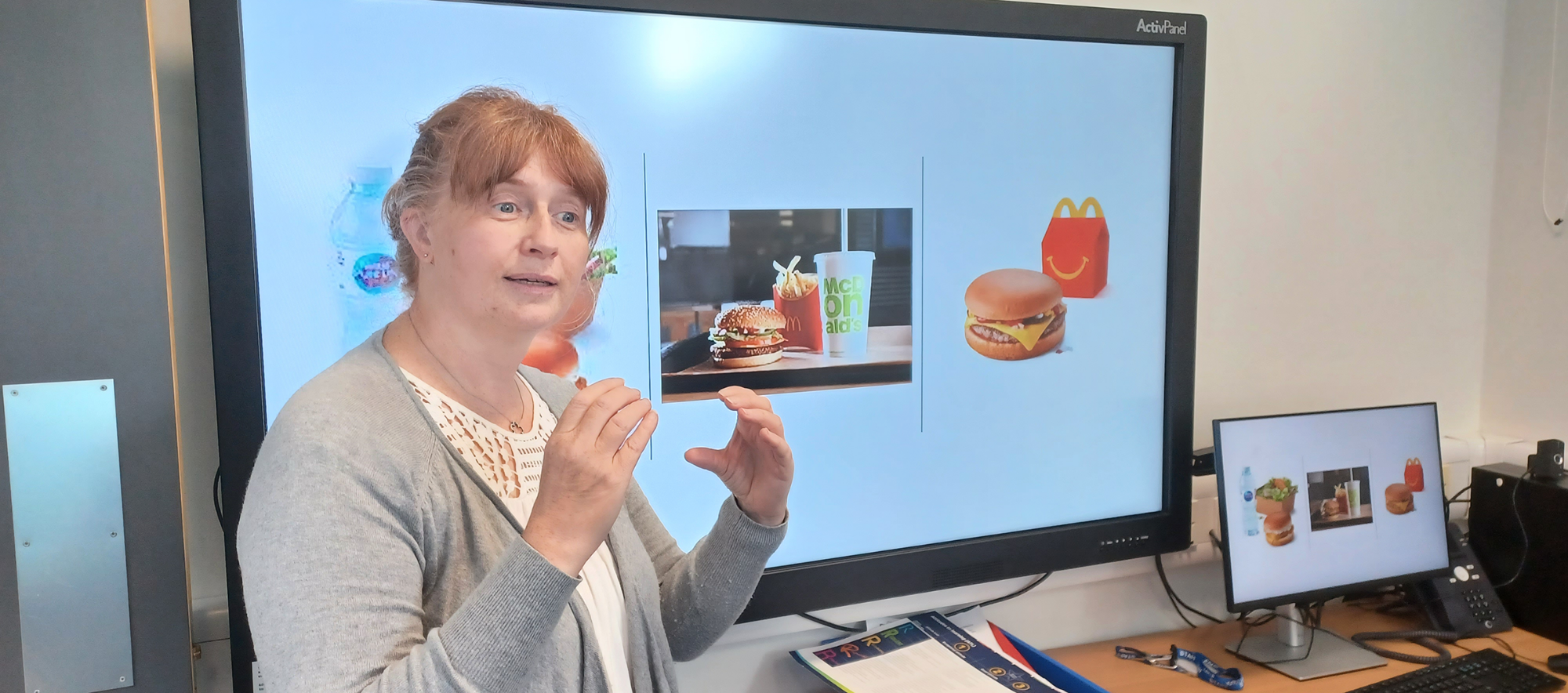Integrated Resource
Integrated Resource for Deaf Students
Silverdale School has a large integrated resource for deaf students within the school. It was first established in Silverdale School in 1980 after the closure of Sheffield’s Maud Maxfield Special School for the Deaf. The integrated resource (IR) currently supports students across Years 7-13 who have an education, health and care plan (EHCP), with deafness (hearing impairment) as their primary need. This is in line with the Deaf Support Service city-wide entry assessment, based on criteria from the National Sensory Impairment Partnership (NatSIP) and Sheffield Support Grid exemplification.
The students have severe/profound hearing loss and require a range of communication approaches, which include oral English, British Sign Language (BSL) and Sign Supported English.
Finding the right approach for each child
 The staff team at Silverdale includes qualified teachers of the deaf, a deaf instructor and specialist teaching assistants. Timetables are set according to individual need, and the students spend some time in mainstream lessons and some time in the resource base, to varying degrees. They all have form time or assembly with their hearing peers every morning. Support for students in mainstream lessons will include communication support through signing and one-to-one or small group support with vocabulary, consolidation of learning materials and concepts. They also have access arrangements in place for formal exams.
The staff team at Silverdale includes qualified teachers of the deaf, a deaf instructor and specialist teaching assistants. Timetables are set according to individual need, and the students spend some time in mainstream lessons and some time in the resource base, to varying degrees. They all have form time or assembly with their hearing peers every morning. Support for students in mainstream lessons will include communication support through signing and one-to-one or small group support with vocabulary, consolidation of learning materials and concepts. They also have access arrangements in place for formal exams.
In the resource base, teaching covers a broad spectrum of the curriculum at an appropriate level, with a particular focus on language development. It can also be a time to back up mainstream learning. Students may be offered alternative qualifications at key stage 4 in English, maths and science and also have the opportunity to attain formal qualifications in sign language where the pupil and family want this. Staff work closely with other agencies including Speech and Language Therapy, Deaf CAMHS and other deaf role models.
Each student’s language, ability and communication needs are taken into consideration when planning individual timetables. The style and range of teaching and learning activities provided acknowledges that deaf pupils learn in different ways. By varying the style of lessons, staff aim to make the work accessible to all children whilst maintaining motivation and interest.
 Preparation for adulthood is prioritised in the resource and students are taught practical life-skills such as understanding their own audiology, healthy living, travel training, food preparation, understanding finance and budgeting, form filling and are supported in developing their aspirations and future goals.
Preparation for adulthood is prioritised in the resource and students are taught practical life-skills such as understanding their own audiology, healthy living, travel training, food preparation, understanding finance and budgeting, form filling and are supported in developing their aspirations and future goals.
We take students on frequent excursions to develop their cultural capital and expose them to different environments, events and situations where they interact with the public. We also support them in providing social opportunities and invite in adults from all walks of life to show the range of careers available to them as part of the deaf community. Visits have included a team from the National Deaf Children’s Society and a footballer from the England Deaf Team who worked with the students on a regular basis. We also support the students in developing their emotional literacy, maintaining friendships and managing their mental health.
Audiology
 Checks of hearing aids, ear moulds, cochlear implant systems and radio aids are carried out on a regular basis. We encourage the students to value their hearing aids, increasingly manage their own aids and understand their hearing loss. They are taught how to connect their aids to different devices which can be used for leisure and social reasons as well as for learning support in the classroom. They also have the opportunity to learn about assistive devices in the home as they are gaining more independence. We support the students in their move from the children’s hospital to adult services by working with both hospitals to ensure students and their families feel ready for this transition. We have had staff from the hospital visit and explain their role.
Checks of hearing aids, ear moulds, cochlear implant systems and radio aids are carried out on a regular basis. We encourage the students to value their hearing aids, increasingly manage their own aids and understand their hearing loss. They are taught how to connect their aids to different devices which can be used for leisure and social reasons as well as for learning support in the classroom. They also have the opportunity to learn about assistive devices in the home as they are gaining more independence. We support the students in their move from the children’s hospital to adult services by working with both hospitals to ensure students and their families feel ready for this transition. We have had staff from the hospital visit and explain their role.
An educational audiologist and assistant work closely with the team to maintain hearing aids and radio aids and provide new technology as it becomes available. We are also in close contact with the cochlear implant centres should a fault arise with a cochlear implant processor.
For a deaf student, the effects of the varying distance from the teacher, poor acoustics and the background noise in a classroom combine to make speech difficult to access. The teacher wears a radio aid transmitter which allows their voice to be sent to the device that the student wears. We support mainstream staff in knowing how to use the radio aid appropriately and promote the students in developing their confidence and self-advocacy skills for knowing what works best for them in the classroom.
Supporting deaf students at Silverdale

It is important to us that all our deaf students have a positive experience in education and form part of the main student body. To support this, we work with all our students and teachers to ensure that their learning experience gives them the best start in life. Many students joining the main school in Year 7 will not have met children who are deaf before, and we provide deaf awareness sessions to help them understand how best to support their deaf peers. We also run BSL clubs at lunchtimes which are open to deaf and hearing students, to support friendships and communication.
School assemblies and presentations are signed so that our deaf students can integrate in all parts of school life.
Transition
We take care to ensure there is a successful transition; work is done with primary aged children and families at annual review meetings. In Year 6, Silverdale IR staff visit the primary schools and there are opportunities for an extended transition programme to Silverdale.
Communication with families is crucial, and we contact and meet parents regularly to discuss their children’s progress and support families with accessing school events and transitions.
After key stage 4, if students meet the required entry levels for the Sixth Form, support can continue to meet their needs post-16. This will take account of the importance for them to develop independence and study skills. We also have extremely good links with Sheffield College and have sessions dedicated to preparation for post-16 courses. We have established links with post-16 settings across the city, and the service will work with students wherever they choose to go, to pursue post-16 courses. Several deaf students from the IR have gone on to higher education in universities and have been successful in their studies.
Contact details
- Resource Coordinator: Mrs Saffery Coates
- Email: Email resource coordinator
- Tel: 0114 236 9991 ask for the Integrated Resource
- Mobile: 07792 489654



